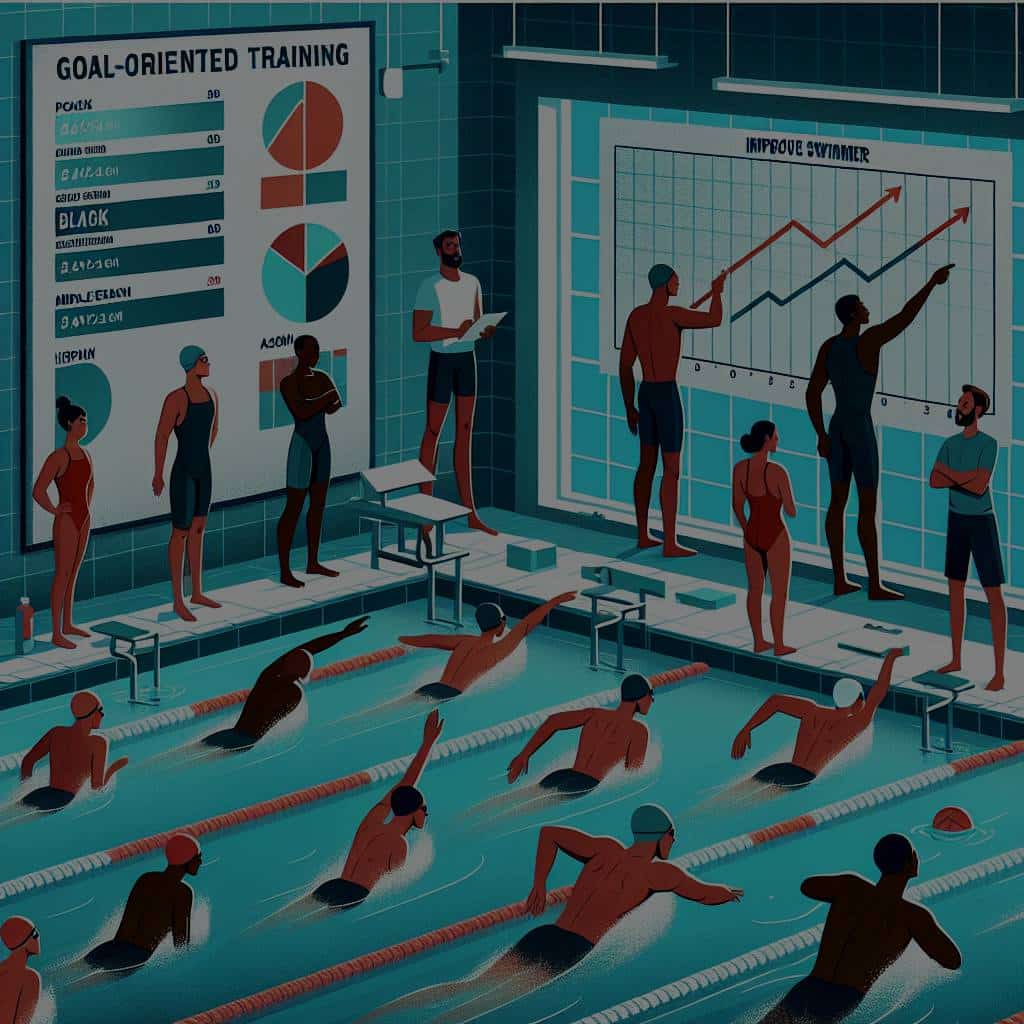How Can Goal-Oriented Training Be Applied to Improve Competitive Swimmers?

Swimming is not just about being the fastest in the water. Behind every race, every stroke, and every breath, there’s a strategic plan. A plan that involves rigorous training, goal-setting, and continuous tweaking to enhance performance. The art of swimming is a balance between physical prowess and mental strength. This article explores the depth of goal-oriented training and how its application can enhance the performance of competitive swimmers.
The Importance of Goal Setting in Swimming
Setting goals is a crucial part of any training regimen. In the context of competitive swimming, it goes beyond the simple desire to swim faster or win a race. Goal setting is the process of determining, articulating, and committing to specific, measurable, and time-bound objectives.
Also read : What’s the Best Approach for Building Endurance in Competitive Dance?
As a swimmer, or as a coach leading a team of swimmers, it’s essential to establish goals that not only challenge but also motivate. Every goal should serve as a milestone towards the ultimate objective, whether it’s improving a personal best time, mastering a new stroke, or qualifying for a prestigious meet.
Without goals, training can become aimless and the motivation to improve may dwindle. Goal setting brings focus and purpose to the training process, enabling swimmers to track their progress, celebrate their triumphs and navigate the setbacks.
In parallel : How Can Mountain Bikers Train to Improve Technical Downhill Skills?
Effective Goal Setting Techniques
Effective goal setting is not about listing a bunch of lofty aspirations. It’s a strategic process that requires careful thought, planning, and execution. While setting goals, it’s paramount to make them SMART – Specific, Measurable, Achievable, Relevant, and Time-bound.
For swimmers, a specific goal could be improving their butterfly stroke or shaving off a few seconds from their 100m freestyle time. These goals are measurable and can be tracked over time. They should be achievable, meaning they push the swimmer but are still within realistic reach. The goals need to be relevant to the swimmer’s overall performance objectives. Lastly, assigning a timeline to each goal ensures that the swimmer has a concrete deadline to work towards.
The process of setting goals should also involve regular check-ins and revisions. This allows swimmers to adjust their goals based on their performance data and feedback.
The Role of a Coach in Goal Setting
A coach plays a vital role in the goal-setting process. Coaches are responsible for guiding and supporting their swimmers in setting and achieving their goals. They provide the necessary intervention when a swimmer struggles and celebrate their victories when they succeed.
As a coach, you should work closely with your swimmers to set challenging yet realistic goals. You need to analyze performance data, understand each swimmer’s strengths and weaknesses, and design training plans that align with their goals. Above all, it’s your responsibility to foster a supportive environment that keeps your swimmers motivated and focused on their goals.
Remember, goal setting is a collaborative process. Regular communication with your swimmers is key. Encourage them to share their thoughts, concerns, and ambitions. This will help you understand their individual needs and tailor your coaching approach accordingly.
Incorporating Mental Training Into the Goal Setting Process
While physical training forms the foundation of a swimmer’s performance, mental training is the finishing touch that separates the great from the good. The competitive swimming world is as much about mental toughness as it is about physical strength. A swimmer’s ability to handle pressure, maintain focus, and bounce back from disappointments is a significant determinant of their success.
As part of the goal-setting process, it’s vital to include mental training goals. These could range from improving concentration during races to managing pre-race anxiety. Mental training techniques such as visualization, relaxation exercises, and positive self-talk can be valuable tools to help swimmers reach these goals.
Remember, every swimmer is unique, and what works for one may not work for another. Therefore, it’s essential to personalize mental training strategies based on the individual needs of each swimmer.
In conclusion, goal-oriented training is a powerful tool that can significantly improve a swimmer’s performance. The process of setting specific, measurable, achievable, relevant, and time-bound goals brings focus to training, motivates swimmers, and enhances their competitive performance. With the guidance of a supportive coach and the incorporation of mental training techniques, swimmers can reach their full potential and excel in the competitive swimming world.
Using Google Scholar and PubMed for Evidence-Based Goal Setting
Adopting a scientific approach to goal-setting can enhance the effectiveness of a swimmer’s training program. Various databases, such as Google Scholar and PubMed, provide a plethora of scientific articles that can aid in the process. For instance, studies conducted by sport psychologists like Alexandra Petala and Olivier Poirier-Leroy reveal the positive impact of goal setting on swimming performance.
Google Scholar and PubMed are excellent resources to find articles that provide evidence-based strategies for setting effective goals. For instance, a coach could use these databases to find research on the optimal frequency of goal revisions, the impact of different types of goals on performance, and the effectiveness of various mental training techniques.
One study might suggest that a swimmer’s performance can be improved by setting process goals, such as perfecting a specific technical aspect of the stroke, in addition to outcome goals like achieving a personal best time. Another study may highlight the effectiveness of visualization exercises in enhancing a swimmer’s mental readiness for competition.
When setting goals, it’s important not to overlook the value of a control group. For instance, a study might compare the performance of swimmers who engage in mental training with those who don’t. Such studies can provide valuable insights into the impact of different goal-setting and training techniques on swimming performance.
While using Google Scholar or PubMed, remember to open the articles in a separate window. This allows you to easily compare the findings of different studies and make informed decisions about your swimming training goals.
Conclusion: The Power of Goal-Oriented Training in Competitive Swimming
To wrap it up, goal-oriented training is a critical factor in improving a swimmer’s performance. It provides a clear path towards achieving personal bests, mastering new techniques, and reaching competitive milestones. Through the process of setting SMART goals, swimmers can bring focus to their training, stay motivated, and track their progress effectively.
It’s important to note that goal setting is not a one-size-fits-all process. Each swimmer is unique, with individual strengths, weaknesses, and aspirations. Therefore, the goal-setting process should be personalized to each swimmer’s needs, and should involve regular revisions based on performance data and feedback.
Coaches play an essential role in this process. By understanding each swimmer’s needs, analyzing performance data, and providing a supportive environment, coaches can guide their swimmers towards achieving their goals.
Additionally, using resources like Google Scholar and PubMed can provide evidence-based strategies for setting effective goals. By incorporating findings from sport psychology research into the goal-setting and training process, coaches and swimmers can make more informed decisions and enhance the effectiveness of their training.
Finally, don’t forget the role of mental training in achieving peak performance. Techniques such as visualization, relaxation exercises, and positive self-talk can help manage pre-race anxiety, improve concentration, and build mental toughness.
In the world of competitive swimming, goal-oriented training, backed by scientific research and personalized to each swimmer’s needs, can indeed make a significant difference. It’s time to dive in and swim towards those goals!
